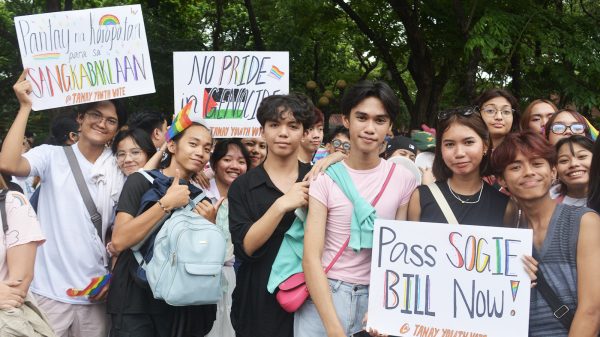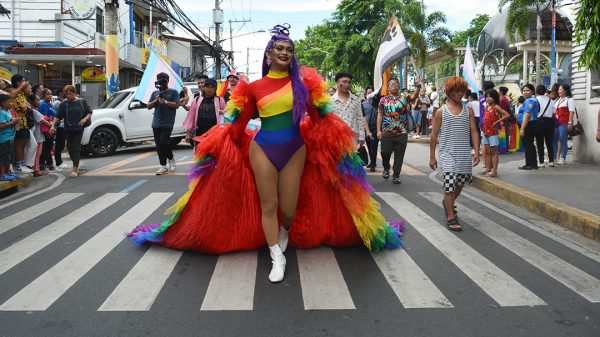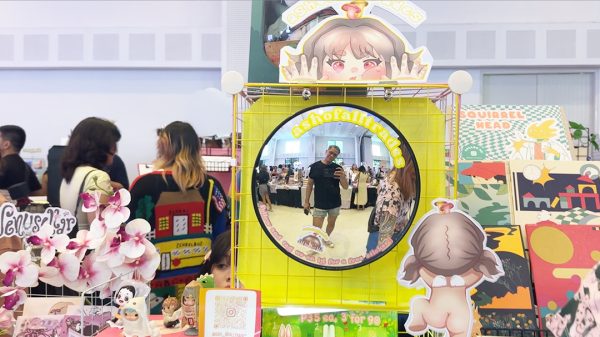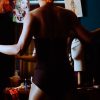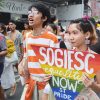Choosing to go out while the world is panicking over Covid-19 is “scary,” said Bella Abac, a freelance hairdresser/make-up artist from the City of Bacoor in the Province of Cavite. Though she knows she may be putting herself at risk of getting infected by the dreaded novel coronavirus 2019, “kailangan ko naman ay budget… kasi ito yung source of income ko (I need earn… because this is my source of income).”
The government – e.g. the barangay – gave some support; in Abac’s case, a few kilos of rice, noodles and canned goods. But since the Covid-19 lockdown is expected to last for weeks, this is obviously not going to be enough. And so putting one at risk (and others at risk, for that matter) becomes a necessity to survive.
According to Ging Cristobal, project coordinator for Asia & Pacific Islands Region of OutRight Action International: “‘Yung Covid-19, napakalaki ng pinsala sa lahat (Covid-19 did big damage do everyone)” though even more so to minority sectors like the LGBTQIA community.
To start, there’s the damage done to livelihood, she said. Many LGBTQIA people still experience discrimination that force them to engage in informal sectors; “ibig sabihin nito, sila ay hairdresser, staff sa grocery, eatery, palengke… at alam natin na ito ay ‘No work, No pay.’ Mas pagtuunan natin ng pansin yung mga marginalized sectors (this means that these people are hairdressers, staff in groceries or eateries or markets… and they don’t earn if they don’t work. We should give attention to those in the marginalized sectors).”


ECONOMIC WOES
The economic impact of Covid-19 is now being discussed, including in the Philippines. In February, for instance, Statista.com, for instance, reported that about 75% of Filipinos perceived that the Covid-19 outbreak would affect the international economy, while 65% believed the national economy of the Philippines would be affected.
In fact, as of early March 2020, the global pandemic already contracted a decline of 2.4% in US’s GDP. Specific to the Philippines, the World Bank still sees the country’s economy to grow by 3% at best, contracting 0.5% at worst in 2020 due to the Covid-19 pandemic. But really, it is still too early to see how big an impact Covid-19 will have on the economy.
What abounds now, instead, are anecdotal evidence of the difficulties experienced because of the pandemic, and the lockdowns implemented to monitor/control the same.
DAY-TO-DAY SURVIVAL
For Elden Lopena, owner of Top Touch Beauty Salon in Cotabato City, we should be thankful that we’re not as of yet as affected by other bigger countries; but “sana matapos na ito para di na masyado magtagal ang hirap (hopefully this ends soon so the hardships don’t last long)”.
Lopena lamented that as an owner of a salon, “meron din akong mga tauhan (I also have staff)” and he needs to help them with their daily needs, even as he worries where to source money for would-be expenses for his business (e.g. rental, utilities). Therefore, closing – even temporarily – has a big impact.
Maureen Mejia Chan, owner of Salon de Maureen in Makati City, estimates that she’d lose over P100,000 because of the lockdown, and so “hindi ko alam ano ang gagawin ko (I don’t know what I’d do).”
The difficulty is more pronounced for those who earn daily wages, said Ms Garner delos Reyes Lagare, salon owner/hair and make-up artist/PMU artist and instructor. “Ang nakaka-awa ay yung mga taong walang ipon (It’s sadder for people without savings)” because they don’t have the capacity to buy basic needs (e.g. food, milk for babies, medicines, etc).
Workers in informal sectors – as noted by Cristobal – worry day to day.
Vinz Calvin (a.k.a. Lumina), a drag queen, said that with venues where they perform closed (for three weeks now), they haven’t been earning at all.
To earn, some become more creative.
“Some drag queens, they hold shows online,” Vinz Calvin said. The viewers give “tips” by sending these to remittance centers/apps.
The “creativity” assumes, however, that everyone affected by lockdown has access to the same internet (and speed) services, which isn’t the case. Globe Telecom, for instance, urges subscribers to be ‘conscientious’ with internet use while most Filipinos are working from home, highlighting the impact of the demand on the connections/availability of connections.


Like Abac, who used to occasionally take risks by still services clients out of necessity, Lopena said that he knows of others who also do home service.
“Kung makakalabas… lalabas (If we can go out of our houses, we do so to serve clients),” he said, so that “kahit papaano makakatulong din sa pang-araw-araw na gastusin (so it helps in daily expenses).”
But fear (of getting infected or infecting others) is limiting this now, on top of the need to comply with the lockdowns, else risk getting arrested. And so many are basically left to be hungry.
HIGHLIGHTING LGBTQIA ISSUES
For Cristobal, the Covid-19 lockdown also has an unwanted effects.
There’s the surfacing of anti-LGBTQIA practices – e.g. in Quezon City, a lesbian couple complained that they did not receive goods from the local government because they were not considered “household”/”family”. The city is fortunate enough to have an existing anti-discrimination ordinance (ADO) that prohibits discrimination of LGBTQIA people within the city, so that the issue of the lesbian couple was resolved; but other local government units (LGUs) also in lockdown do not have ADOs.
It also puts members of the LGBTQIA community to be in situations/locations where they are at risk of getting abused – e.g. students, for instance, are now forced to be at home for the whole day, even if family members may not be accepting of them, or are even abusive of them.
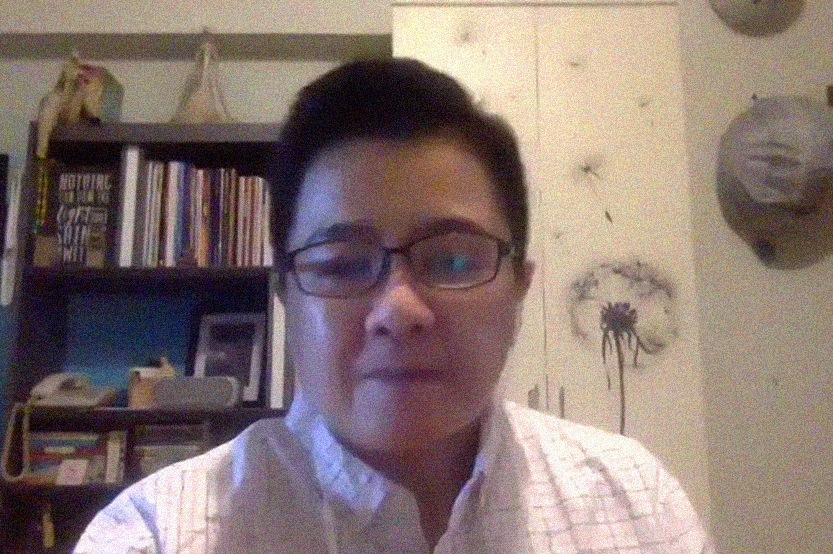
HELP THE MARGINALIZED
Chan said that she heard of the support the government is supposed to give to small- and medium-sized businesses, like her salon. If true, she said it could help because “it’s difficult for businesspeople who are at a loss on where yo source the fund to continue financing their businesses.”
But Chan is among those at a loss on how to access/avail of this said support.
Vinz Calvin added that, in the case of drag queens for instance, who are also workers in the entertainment industry, “we’re not even sure if we qualify to ask for government support.” And this is even if this support is just-as-needed by them.
For some, giving help is becoming normal (in lieu of relying on government help). Lopena, for instance, said that “yung naitabi naming salapi, tinutulungan na rin namin sila (we use our savings to help our staff).”
But for Lopena, “yung hingi ng mamamayan kasi, yung pagkain… sana mabigyan sila ng tamang ayuda (what people are asking for, including food… hopefully the government can help them with that).”
The sentiment was shared by Lagare who said that getting help is ideal, though currently, the promised help is not reaching to target populations. “Kaya nakaka-awa talaga yung walang ipon sa ganitong panahon (Those who do not have savings are disadvantaged at times like this).”
And so Abac said that government should prioritize those who are in dire need of support. She added, though, that “yung iba naman na kaya namang makabili, huwag na daing nang daing kasi ang government ay kumikilos naman (those who can afford to buy, stop simply complaining because the government is acting anyway).”
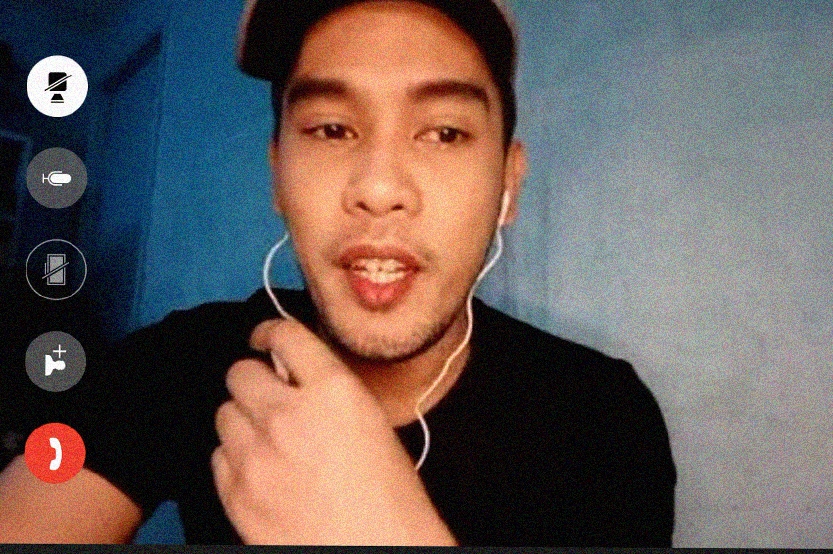
Eventually, said Vinz Calvin, people should learn to be more prepared.
“Hopefully something like this doesn’t happens again, but in case it does, at least we have savings to use,” he said.
But while everyone is affected, LGBTQIA people should be very mindful, said Cristobal.
“Itong mga darating na panahon ay hindi ko alam kung mas magiging mabuti na ang kalagayan o mas (sasama) pa. Pero kahit sana anong mangyari, hindi tayo laging iniiwan (I don’t know if things will get better of worse. But whatever happens, LGBTQIA people shouldn’t be left behind),” Cristobal ended.












